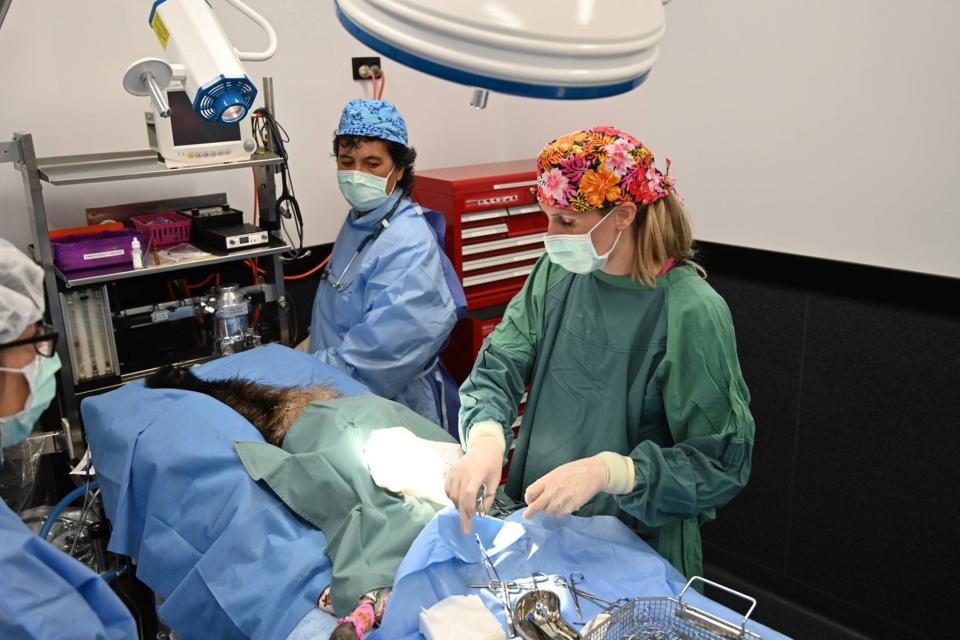Emu 'extremely lucky' to survive after screws and nails found in stomach
An emu found with nails and screws inside his stomach would have “most certainly died a slow and painful death” if he had not been rescued.
The emu was captured by the Queensland RSPCA after wandering the suburban streets and underwent a routine examination.
Veterinarians were surprised to find the bird, who was spotted in Eight Mile Plains – southeast of Brisbane, had ingested several metal items.
An X-ray showed nails and what is believed to be roofing screws in the stomach of the animal.

The young emu underwent emergency surgery to remove the metal objects.
RSPCA veterinarian Meghan Burrows performed the two-and-a-half hour surgery on the animal named Digger.
Dr Burrows said Digger was extremely lucky.
“The emu had ingested the foreign objects some time ago,” she said.
“Thankfully the surgery went well, however it is not out of the woods yet. The next seven days will be critical and we are all hoping for the best.
“If this bird was left untreated it would have most certainly died a slow and painful death.”
RSPCA Queensland inspectors had identified the person keeping the bird and would be investigating the matter further.


The Department of Environment and Science will also be notified as it is believed the emu was kept unlawfully.
“This should come as a good reminder that we should appreciate our amazing wildlife, but ensure we do not take them out of their natural environment,” chief inspector Daniel Young said.
“Native wildlife can be extremely difficult to care for and should be left to those that have the expert knowledge and experience to care for them.”
Inspectors are seeing more native animals kept in captivity and poor conditions in urban areas – the most common being reptiles such as snakes, lizards and turtles.
Do you have a story tip? Email: newsroomau@yahoonews.com.
You can also follow us on Facebook, download the Yahoo News app from iTunes or Google Play and stay up to date with the latest news with Yahoo’s daily newsletter. Sign up here.



